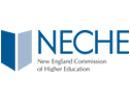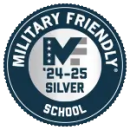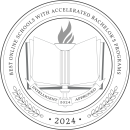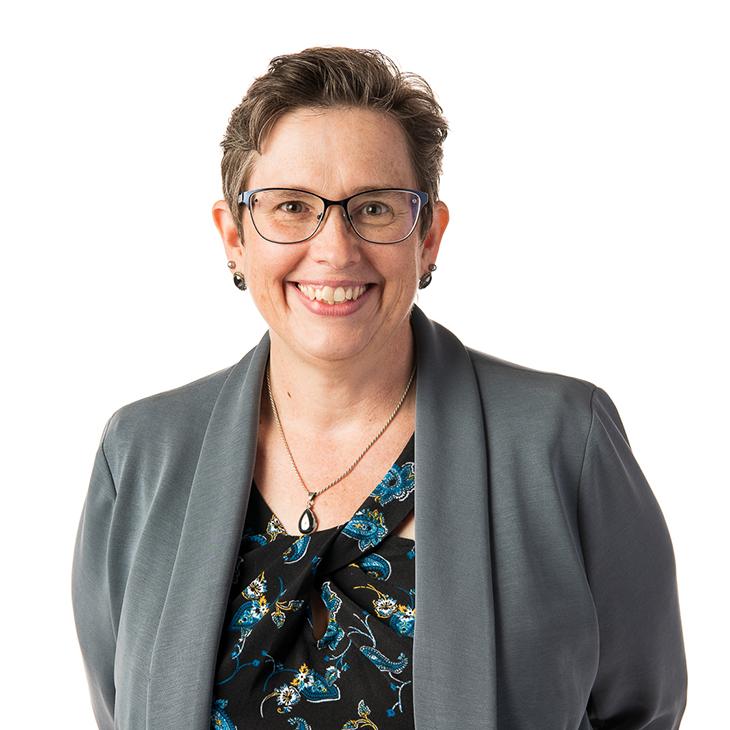ACCT-130
Build a Future in Accounting with Essential Skills
Prepare for a rewarding career in accounting with Champlain College Online’s Bachelor of Science in Accounting. Designed around the American Institute of Certified Public Accountants (AICPA) Core Competency Framework, this program equips you with foundational accounting and business skills employers seek, emphasizing critical thinking, problem-solving, and real-world application.
Finish your program faster with credit for prior learning and experience.
Differentiate your degree and get your resume noticed with a certificate. Speak with your advisor for information.
Equip Yourself for Success in Accounting
- Comprehensive Accounting Knowledge: Gain expertise in financial accounting, tax preparation, managerial accounting, and auditing, all aligned with industry standards.
- Real-World Problem Solving: Develop analytical skills to assess financial health and create strategies for organizational growth.
- Ethical Financial Practices: Learn to uphold the integrity of financial information, ensuring credibility and transparency in business decisions.
- Pathway to CPA Certification: Meet 120 of the 150 credit hours required for CPA eligibility, with Champlain graduates achieving high success rates on the CPA exam.
- Soft Skills and Information Systems: Build essential communication and systems skills to enhance your versatility in today’s data-driven accounting field.
The B.S. in accounting is a great step toward advanced certification, such as a CPA - our graduates who sit for the CPA exam boast a near-perfect success rate. This program will help you to meet some of the education requirements needed to sit for the exam, including 120 of the 150 required credit hours.
Champlain College has determined that its 120 credit online accounting program does not meet the 150 credit requirement for a CPA license in Vermont. The College has not determined whether the Accounting program meets the education requirements for professional licensure in any other state (or the District of Columbia), please find your state of residence on the NASBA website to learn more about what is required to sit for the CPA exam in your state.
Program Curriculum
Champlain's online accounting courses encompass the top skills needed by today's accounting professionals. Graduates of the program are required to complete the following courses.
Professional Courses (54 credits)
General Education Courses (42 credits)
General Electives (24 Credits)
Note: Some of the courses in this program are available in 15-week terms only. Please contact your advisor for details and information on how this may impact your time to completion.
Accounting is the language of business. This course introduces the student to accounting from the point of view of the user of financial reports and is appropriate for personal as well as business applications. Students explore the impact of transactions on the financial position and profitability of a business, and analyze financial reports of real-world corporations.
Managerial accounting focuses on the needs of management for accounting information to make informed decisions in the internal operations of a company. Topics include decision-making, accounting for planning and control, cost-volume-profit relationships, and budgeting.
Prerequisites
Provides an overview of the entire legal system, with an emphasis on contract rights. Discusses the essential elements of a contract, the breach of contracts and the remedies for breach. Presents business and consumer laws, including white-collar crime, landlord-tenant rights, real property interests and administrative law.
Business analytics and data visualization transform data into business insights to allow for better decision-making. This course utilizes a combination of existing datasets and common analytics tools to teach new and emerging managers, without backgrounds in data science, how to evaluate data, consider available options, and present a graphical representation of data outcomes for decision-makers.
This course introduces the core terminology and principles of marketing. Students learn about the marketing mix (product, price, place, and promotion), market segmentation, and how external factors such as the economy, technology, culture, and competition influence marketing decisions. The course also examines how marketing fits within an organization and contributes to business success, along with how ethical considerations, cultural awareness, global trends, and social responsibility shape marketing practices across industries. No prior business experience is required.
Students will learn about the application of positive individual and group strengths and capacities that can be recognized, evaluated, and expanded to advance organizational well-being. This course encourages students to apply positive organizational behavior processes to everyday challenges organizations face to drive positive workplace behaviors and outcomes. This course also helps students to practice and gain skills, knowledge, and competencies to become positive and impactful leaders and change-makers from whatever position they hold.
In this first course of a two-part sequence focusing on financial reporting students will learn theory, concepts, principles and practices underlying preparation of external financial reports, particularly application of generally accepted accounting principles related to disclosure of current and noncurrent assets and principles of revenue recognition on the Balance sheet, Income Statement and Statement of Retained Earnings. Students will also consider broad issues like the environment of financial reporting, the role of financial reporting and the accounting standard-setting process.
Prerequisites
ACCT-130
Building on the knowledge and skills gained in Intermediate Accounting I, students will examine more intensively the application of generally accepted accounting principles for financial reporting and disclosure of current and noncurrent liabilities and stockholders' equity. Students will gain skills related to the advanced measurement, recognition and reporting of these select topics in financial accounting as well as the Statement of Cash Flows.
Prerequisites
ACCT-230
MGMT 240 is a finance course for managers. It explores financial measurements, the artful application of numbers to solve problems, building financial analysis skills, and the big-picture context needed to understand why finance matters in business management and decision-making. A subset of topics covered in the course include the time value of money, financial statement analysis, ratio analysis, investments, and capital management.
Project Management is the formal application of knowledge, skills, tools, and techniques to project-based activities to meet organizational requirements. Project management is accomplished through the use of processes such as Initiating, Planning, Executing, Monitoring and Controlling, and Closing. Project managers can divide projects into these phases to provide better management control with appropriate links to the ongoing operations of the organization. Collectively, these phases, known as the project life cycle, form the foundation for the practice of project management and are guided by the Body of Knowledge from the Project Management Institute (PMI).
In this comprehensive tax course, students investigate both personal and corporate tax concepts, structure, and planning strategies. They learn a broad-range of tax laws, concepts, and research approaches for different types of taxpayers, with emphasis given to the role of taxation in a business decision-making environment.
Cost accounting presents the behavioral aspects of accounting and identifies essential data that managers use for planning and controlling, costing products and services, and performance measurement. Students study the basic concepts, uses, and procedures related to types of costs and costing systems and uses this information to solve business problems. They will develop quantitative and qualitative analytical skills to analyze and interpret raw data that support the business decision-making process and inventory costing.
Prerequisites
Complete ACCT-140
Learn the fundamentals of accounting information systems and how they function and fit into organizations. Using a cycles approach, the course introduces internal controls, covers basic elements of the revenue and expense cycles, and you will become proficient with documentation techniques, such as flowcharting. You will also consider the uses of computerized accounting software and undertake a software research project. The course focuses on the needs and responsibilities of accountants as users and developers of information technology.
Prerequisites
ACCT-231 or ACCT-345
The study of selected advanced topics in financial accounting, including accounting for income taxes, post-employment benefits, earnings per share, accounting changes and errors, business combinations, consolidated financial statements, accounting for foreign currency transactions, and ethical issues in accounting.
Prerequisites
ACCT-231
In this course students develop an understanding of the auditing process and the relationship between auditing and the organization. The student will demonstrate knowledge of specific auditing concepts, professional standards and procedures utilized by a professional auditor. The student will also discuss other attestation work performed by practicing CPAs as well as ethical and legal considerations of the public accounting profession.. Critical thinking and communication skills are utilized in the course assessments.
Prerequisites
Complete MATH-170 and ACCT-231.
As a professional, accountants are required to stay current in their field, researching and interpreting the constantly changing rules and regulations in the accounting industry. Students will use the accounting knowledge gained during their program to identify accounting issues in the workplace or in a case, research the relevant topics and make recommendations. They will also reflect on the professional and ethical responsibilities of their career.
Prerequisites
ACCT-345, ACCT-420
In addition to the following requirements, students must also complete 3 Credits of a General Education Elective (Any ARTS, COMM, CRIT, ECON, ENGL, HIST, MATH, PHIL, PSYC, SCIE, SOCI, MKCM 120, CRIM except CRIM-225)
This course introduces students to the foundational concepts needed to communicate effectively in writing for academic study and professional development. Students will also learn to read critically to evaluate an author's message. Students will be introduced to rhetorical modes and their role in the development of written communication. Students will also learn how to use revision strategies to create written communication that meets its intended purpose for its intended audience
This course builds on students' proficiency in the writing process and rhetorical modes to introduce the use of sources in written communication. Students will practice information literacy as they learn to determine information needs from sources, develop effective search strategies, and incorporate sources in written communication, legally and ethically.
Prerequisites
Complete ENGL-100
Starting with a frame of human communication as a dynamic system of interactions in which people make choices that impact their relationships, other people, and themselves, students will define theory-informed communication concepts and processes, and critically examine how they apply to everyday life across a variety of contexts. Students will reflect on how the theory, concepts and processes apply to their own lives in becoming competent communicators who are knowledgeable, skilled, and versatile.
In this course, students are introduced to the theory and practice of ethical public communication in a culturally diverse society. Students will demonstrate knowledge of the public communication process which includes determining speech purpose, researching and structuring messages with attention to audience analysis, and setting. They will identify and practice elements of effective delivery in their own public speaking performances and meaningfully critique others' speech performances.
This course examines the principles of effective small group interaction. Students will analyze group development stages and small group roles. They will identify and evaluate communication skills that enhance small group cohesion and problem-solving. Students will explain how conflict affects group processes and compare face-to-face versus digital collaboration environments. These skills prepare students to participate effectively in group settings across academic, professional, and community contexts.
Students will learn and apply critical inquiry skills to analyze persuasive communication created by others and to develop persuasive communication/arguments of their own to solve problems in professional, civic, social, and personal contexts. Specifically, students will learn to recognize fallacies in logic; apply inductive and deductive reasoning strategies to the interpretation and development of persuasive communication; evaluate the validity of sources; and develop logically sound persuasive communication. Students will explore the roles of self-awareness, empathy, and ethics in the context of critical inquiry and the development of arguments.
Prerequisites
Complete ENGL-110.
Ethics refers to accepted standards of right and wrong that prescribe what humans ought to do in various contexts, typically in relation to rights, obligations/duties, benefits to society, fairness, consequences, and virtues. In this course, students will explore both theoretical and practical dimensions of ethics in order to 1) define ethics and identify ethical positions and principles, 2) critically reflect on how ethics impacts individual and collective responsibility, decision-making, and action, and 3) apply ethics to the personal, civic, and professional contexts.
Prerequisites
ENGL-110
This course is an historical overview, and examination of the evolution of digital, film, and print media, and their functions. Students will identify and analyze contemporary problems of the media such as the legal, social, economic and psychological implications of their relationships with society. They also will examine the ways in which marketing and PR professionals utilize the mass media channels to reach their intended target audiences.
This course explores the complex and evolving relationship between human beings and technology. Through a multi-disciplinary approach that draws on fields such as sociology, psychology, philosophy, and history, students will examine the ways in which technology has shaped human culture, identity, and values, as well as how humans have influenced and continue to influence the development, adoption and use of technology.
This course will introduce foundation subject matter and technologies that are critical to the multidisciplinary landscape of cybersecurity.
This course provides students with an understanding of the many different devices and technologies, from historical to emerging, that are required to design and build networks. In a broad survey of concepts and terminology, students will learn about topology, communications, protocols, and security, and to diagram basic networks to specification.
In this course, students will study key concepts such as player engagement, narrative development, and systems design and learn how to apply the principles of game design to narrative content in the development of engaging game experiences. By the end of this course, students should be able to demonstrate these design principles, showcasing their creativity, problem-solving skills, and the ability to adapt to evolving industry standards.
Computer game development is a broad industry involving the coordination of multiple digital technologies and creative design elements. In this course, students explore various computer game genres, the history, philosophy, and ethics of computer games, and methodologies for documenting and directing the game development process. Additionally, students examine the nature of play and engagement in the digital realm, as well as the application of diverse viewpoints in considering the intended game audience and the narrative construction of the games themselves.
This class is designed to provide students who have little or no digital video production knowledge with an introduction to methods and strategies for production of digital video stories. Using the art of telling a story, the class will create educational, informational or personal experience video productions utilizing audio, video, storyboard, scriptwriting and digital editing techniques
This course introduces students to basic statistics for data literacy. With a focus on exploring real-world data, students will interpret numerical information and utilize the tools necessary to complete the entire statistical process: designing a study; gathering, organizing, and analyzing sample data; and making inferences about a population. Students will demonstrate data-driven decision-making and effective communication of numerical data.
Introduces students to the biochemistry and physiology of nutrition and exercise. Emphasis will be placed on human body systems such as musculoskeletal, digestive, respiratory and circulatory, and their relationship to nutrition and fitness. Students will also study the biochemistry of energy conversion as it relates to exercise physiology. Laboratory sessions are designed to reinforce, by a hands-on approach, the principles discussed in lecture. Course includes two laboratory hours per week.
Students will develop the ability to apply scientific methods to understand the natural world, to identify scientific aspects of daily life, and to evaluate the quality of scientific information based on its source and the methods used for its generation.
In this course, students will gain an introduction to classical mechanics and learn about motion, force, energy, and momentum. The course covers vectors, scalars, and coordinate systems, as well as kinematics in one and two dimensions, Newton's Laws of Motion, circular motion, and kinetic energy and work. Students also learn about potential energy and energy conservation, collision theory, rotational motion, moment of inertia, torque, rotational dynamics, and angular momentum.
This course will introduce students to major streams of social justice thought, including historical social justice movements, theoretical problems having to do with social equality, personal freedom, marginalization, and stigmatization, and the ways in which civic and professional communities respond to these issues.
With pressure and release, a window opens and closes, recording light on a sensor. The simple action captures the instinct, judgement, and skill of the person behind the lens. This class will begin a study of the art and craft of photography. Students will develop their vision and their understanding of how to achieve it. Solid skills will be learned and many doors will be opened.
A survey of the continuing change experienced in art since the 15th century. Students will examine how an image is achieved as well as the significance of the subject represented. Individual inquiry concerning the nature of art is encouraged.
Students learn to appreciate films through the critical analysis of various elements of mise-en-scene, cinematography, editing and sound. The course introduces the conventions of classical Hollywood cinema, considers the work of one major director (auteur), and surveys selected international and independent films. Students view and discuss films each week.
Students in the course will explore the cultural history of the music genre broadly referred to as rock. Students will explore the social, economic and political contexts that are influenced by and that influenced each style in the United States. By listening, watching, reflecting upon, discussing and writing, students will explore how music takes on meaning, personally, and culturally. Topics and themes include the relationships between and among gospel, country, funk, folk, disco, rap and hip hop; the role of business and technology in those relationships, and political or transgressive elements of rock music.
In this course, students will investigate how communication practices and processes shape organizations across settings such as businesses, nonprofit, and civic organizations. By examining case studies, applying theory to practice, and reflecting on their own experiences and observations, students critically analyze how communication impacts collaboration, conflict management, and organizational change. Students will explore the role of digital and mediated communication and how organizations communicate externally with stakeholders, partners, and the broader environment.
Specific application of common tools for writing in the working world. Students will be instructed in rhetorical strategies of professional writing including style, report formats, editing, document design, and integration of visual aids. Students will complete a semester-long writing project; oral and written reports associated with the process of problem-solving within the project will be included.
Prerequisites
ENGL-112 or COR-125
Students will learn how to create conditions for successful conflict engagement, a necessary skill for any professional. The course focuses on the foundational capacities to remain calm and connected with oneself and others. In this state students can access helpful ideas and responses and be their best selves regardless of environment. Improving facility for conflict creates stronger relationships and reduces fear. By the end of the course, students will understand that disagreement and difference can become a source of personal and interpersonal growth.
In this course, students will explore and apply writing principles and techniques to effectively interpret and write technical workplace materials. Students will enhance and gain skills to communicate business and technical information by producing instructions, describing processes, applying document design elements, creating and integrating illustrations, researching and writing proposals and formal reports, and presenting content for decision-makers.
Principles of Economics introduces the fundamental concepts of economics - the study of how people manage resources, and how they react to scarcity. This course focuses on both microeconomics (the behavior of consumers and companies) and macroeconomics (large-scale economic factors such as employment and interest rates), so that you'll gain a broad understanding of how a modern market economy functions, how decisions in business settings are informed by economics, and how economics applies to your everyday life.
This course provides students with a comprehensive overview of the American criminal justice system as comprising three essential components: law enforcement, the court system and corrections. Students will recognize that the field of criminal justice is interdisciplinary and they will outline and discuss the historical foundation of the criminal justice system. They will also explore social and ethical dimensions as they review real-world case studies.
This course introduces students to the fundamentals of substantive criminal law. With this foundation for understanding the legal system students will identify the essential elements of crimes, including the criminal act, criminal state of mind, and jurisdiction. They will examine the rationale underlying criminal law, factors affecting criminal responsibility, and legal defenses. By analyzing real-world scenarios, students will develop skills to distinguish lawful from unlawful actions and prepare for advanced studies or careers in criminal justice.
This course focuses on the rules and procedures governing how the American criminal justice system must process individuals suspected, accused, and convicted of law violations.
In this course, students will explore the theory and fundamentals of criminal investigation, emphasizing practical applications for evidence handling and case development. Students will review basic responsibilities of investigators and protocols for report writing, evidence collection, and preparation of cases for trial. The curriculum examines investigative approaches for various crime categories, including violent offenses, property crimes, terrorism, and hate crimes, while introducing comparative perspectives from diverse legal systems.
Prerequisites
Take CRIM-120.
Students will study important themes in the social history of the United States since the Civil War. This course allows students to expand their critical thinking skills through an examination of primary and secondary sources. Themes might include: the evolving status of women; the immigrant experience; the concept of the American dream; the paradox of freedom vs. slavery; the minority experience; the tensions between social classes. Students will be evaluated primarily on writing assignments.
In this course, students will explore broad, foundational knowledge in psychology, including its history, major theorists and a survey of psychology subfields such as developmental, cognitive and social psychology. Students will also describe and assess the role of ethics and social responsibility in the study and application of psychological theory and practices.
In this class, students will explore how social relationships, groups, societies and culture develop and change over time. From a sociological theory foundation and employing the sociological imagination, students will examine the impact of social structures, institutions, and systems on individual lives. Students will apply sociological research methods to investigate sociological phenomena in their own lives.
Principles of Economics introduces the fundamental concepts of economics - the study of how people manage resources, and how they react to scarcity. This course focuses on both microeconomics (the behavior of consumers and companies) and macroeconomics (large-scale economic factors such as employment and interest rates), so that you'll gain a broad understanding of how a modern market economy functions, how decisions in business settings are informed by economics, and how economics applies to your everyday life.
Additional Program Details
Graduates of the accounting bachelor's online program will demonstrate the following industry-specific skills, knowledge, and competencies.
- Analyze and assess the risks of an organization's accounting system, including internal controls, to ensure sound financial information, and to generate appropriate asset evaluation and/or to reduce fraud.
- Integrate in-depth financial analysis with effective communication skills to accurately and clearly convey information to stakeholders
- Evaluate progress toward meeting organizational goals by using quantitative and qualitative performance measures that take into consideration risks, internal controls and ethics.
- Use appropriate accounting tools and financial analyses given complex business, legal and ethical scenarios.
- Research, synthesize, and evaluate financial information so that results can be communicated to stakeholders in a cohesive and logical way, effectively distinguishing fact from opinion.
- Describe and integrate other aspects of the organization and its various functions when analyzing, evaluating and communicating financial information.
Design your own degree and enhance its value and focus by adding a certificate. Adding a certificate allows you to develop specialized skills, strengthen your résumé, and tailor your education to align with career goals. Choose from the undergraduate or graduate certificates on this page.
Note: To earn a certificate, you must speak with your advisor first. You must be officially enrolled in the certificate program before you complete the required courses in it — coursework completed prior to enrollment cannot be applied later, and certificates may not be added retroactively. Careful planning with an advisor is essential to ensure all policies and timelines are met.
Our admissions team seeks to admit students who:
- Demonstrate a solid academic foundation - a minimum 2.5 GPA is our recommendation, though exceptions may be made on a case-by-case basis for those who demonstrate a potential for academic success in other ways.
- Possess an aptitude for success in an online learning environment.
- Exhibit the ability to make a positive contribution to the Champlain College Online community.
To learn more about submitting transcripts, or requirements for home-schooled students, those educated abroad or returning students visit our Undergraduate Admissions page.
Our transfer credit evaluation team works hard to ensure you get the transfer credits you deserve, from a variety of sources including prior college credits, work experience and training, military training and experience, and more. Our goal is to help you graduate from Champlain College Online as quickly and affordably as possible. Visit our Transfer Credit Options page to learn more.
Champlain College Online's business faculty, led by Department Chair Dr. Elaine Young, are expert practitioners in the field. Their industry expertise ensures that our business management curriculum is aligned with the needs of employers, and reflects the skills today’s business professionals need for success. Classes led by our seasoned experts will give you real-world insight into the business world, and create a rich community of career-focused learning.
Tuition & Costs
Online Undergraduate Tuition Fall '25 - Summer '26
Tuition & Costs
Online Undergraduate Tuition Fall '26 - Summer '27
* Alumni is defined, for this tuition rate, as any degree program graduate from Champlain College or Champlain College Online.
** Veteran rate effective Spring 2025, not retroactive
See the undergraduate cost of attendance and fees here
Affordability and Paying For Your Education
We provide a number of options to make your online education affordable, including preferred tuition for alumni, associate degree graduates, community college graduates, and military.
Launch a Career in High-Demand Accounting Roles
The demand for qualified accounting professionals continues to grow as global markets expand. According to the Bureau of Labor Statistics, accounting roles are projected to increase by 7%* from 2020 to 2030, with accountants and auditors earning a median annual salary of $73,560.
Champlain’s BS in Accounting prepares you for diverse roles across sectors from public accounting to industry and non-profit sectors, equipping you with the skills to excel and adapt in a dynamic field.
*Source: Bureau of Labor Statistics, 2024
Top Careers for Bachelor’s in Accounting Graduates:
- Accounting Information Systems Specialist
- Financial Analyst
- Forensic Accountant
- Tax Accountant
- Budget Analyst

Why Champlain
Career Growth
"I had a two-year degree and knew I would need a bachelor's to advance. I saw that the U.S. Department of Labor projected a high demand for employees in accounting, and Champlain is ranked one of the top schools for accounting, so it was the right fit."

Academic Excellence and Recognition

Regionally accredited by the New England Commission of Higher Education

Designated as a Military Friendly School for our commitment to the military community
Ranked among the best by Tech Guide for game design and computer science

Named the among the best schools with accelerated bachelor's degrees by Intelligent.com
Meet the Program Director
Elaine Young, PhD
- Accounting (Certificates, A.S., B.S., M.S.)
- Analytics (Certificates, M.S. Programs)
- Business (Certificates, A.S.,B.S.,MBA)
- Digital Marketing (B.S.)
- Digital Marketing and Technology (M.S.)
- Digital Media (B.S.)
- Esports Management (B.S.)
- Finance (Certificates, A.S., B.S.)
- Healthcare (all programs)
- Human Resource Management
- Leadership (Organizational and Digital Transformation)
- Management Information Systems
- Marketing (M.S.)
- Marketing Analytics (M.S.)
- Marketing & Communication (B.S.)
- Marketing Management (B.S.)
- Positive Organization Development Certificate
- Positive Organizational Psychology & Development
- Project Management
- Public Administration
About
Dr. Elaine Young is the Program Director for all business programs, and Curriculum Innovation Faculty Lead, at Champlain College Online.
As chair, Dr. Young manages the faculty, curriculum, and assessment for undergraduate and graduate programs in the business programs as well as developing and teaching courses. As Curriculum Innovation Faculty Lead, Dr. Young supports creation of new curriculum offerings that serve both the needs of adults continuing their education and employers who need educational opportunities for their employees. Prior to her leadership role at Champlain College Online, Dr. Young has been part of the Champlain College community since 2000 as a professor and faculty advisor for traditional on-campus students. She is a HubSpot Educator and a Certified Appreciative Advisor.
Dr. Young has a Ph.D. in Organizational Management from Capella University, where her dissertation research examined technology use and adoption of college students. In addition, she holds an M.S. in Internet Strategy Management from Marlboro College, a B.S. in Communication and Public Relations from SUNY Brockport and an A.S. in Communication from Genesee Community College. Dr. Young has over ten years of experience in the Marketing and Public Affairs profession, specializing in nonprofits. She is the author of “Tuned-in Family: How to Cope, Communicate and Connect in a Digital World” (2014).

Frequently Asked Questions
Following are some frequently asked questions about our bachelor of science in accounting.
Yes, Champlain is a credible institution with accredited programs, including the bachelor of accounting online degree. Employers are increasingly recognizing the validity of online degrees, especially when they come from well-established institutions such as Champlain College Online.
The time it takes to earn an online accounting degree varies depending on the program, course load, and study pace. A full-time student usually completes a bachelor's in accounting in four years, but accelerated options can take two to three years. Part-time study may extend completion time. Transfer credits, work experience, and individual pacing also impact degree duration.
Our online accounting courses cover a variety of topics to provide you with a comprehensive understanding of accounting principles and practices. Some topics your courses may cover include financial accounting, managerial accounting, auditing, taxation, and accounting information systems. Each course is designed to help you develop the knowledge and skills necessary for a successful career in accounting.
To save money on the bachelor of accounting online degree, choose an affordable education option like Champlain College Online. You may also consider applying for financial aid, working part-time, and reducing living costs by budgeting for housing and meals.
Champlain College Online’s online accounting degree covers 120 of the 150 credit hours required for CPA eligibility in Vermont, aligning coursework with AICPA standards to give you the knowledge and skills needed to prepare for the exam.
The College has not determined whether the Accounting program meets the education requirements for professional licensure in any other state (or the District of Columbia), please find your state of residence on the NASBA website to learn more about what is required to sit for the CPA exam in your state.
You May Also Be Interested In
Get Your Bachelor's in Accounting Program Guide
Learn what you can expect from our online bachelor's in accounting program.

Download Program Guide
I acknowledge that, by clicking the "submit" button, I am giving my express written consent to Champlain College and its representatives to contact me about educational opportunities via email, text, or phone, at the phone number above, including my mobile phone, using an automatic dialer, or pre-recorded message. Message and data rates may apply. I understand that my consent is not a requirement for enrollment, and I may withdraw my consent at any time.






